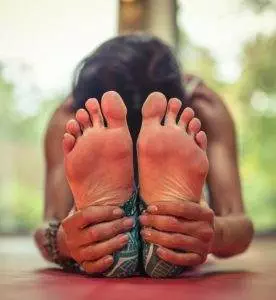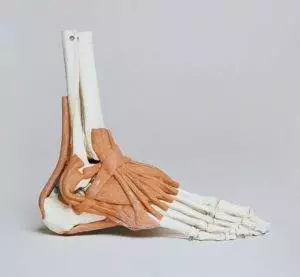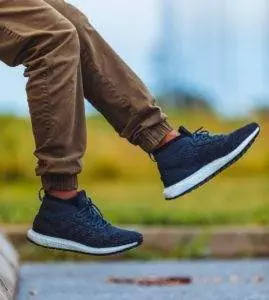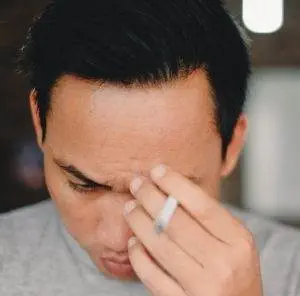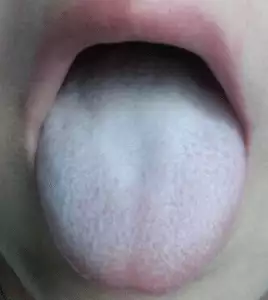By Qineng Tan, L.Ac., Ph.D. & Xiaomei Cai, L.Ac., Ph.D.

Are you experiencing unusual forgetfulness? Amnesia due to an injury or a brain disease like Alzheimer’s can cause loss of memory. TCM and acupuncture offer an alternative treatment for problems with memory loss due to different types of amnesia or dementia related to brain diseases like Alzheimer’s or Parkinson’s.
Amnesia is often depicted in stories as the sudden loss of one’s memory, or even their whole identity, due to a traumatic accident of some sort. That kind of dramatic memory loss is rare in real life. Difficulty remembering events from one’s past is called retrograde amnesia. The most common type of amnesia, however, is anterograde amnesia, which causes short-term memory problems. People with anterograde amnesia may be able to remember facts they learned in school, and how to do things like play a sport or an instrument, but they have trouble remembering what they did earlier this morning, or what day of the week it is. Anterograde amnesia can have a serious impact on a person’s life, as it can make it difficult to retain new information, learn new skills, or form relationships with new people.
Conditions like Alzheimer’s and Parkinson’s can affect memory and cause other types of cognitive impairment. Memory problems can be a part of dementia; the term “dementia” encompasses other kinds of cognitive decline in addition to memory loss. Being more forgetful is considered a common aspect of mild cognitive impairment (MCI). MCI is the term for changes in thinking patterns that occur in older adults, sometimes as a precursor to more serious dementia. “Amnestic MCI” pertains to short-term memory problems like forgetting recent events, appointments, and facts or names one might have been able to call up easily in the past.
People suffering from depression and/or anxiety, and those with PTSD often experience short-term memory loss, forgetfulness, or a sense of confusion.
At this point, there is no real medical solution for amnesia or other kinds of memory loss. There are no treatments that cure or reverse dementia or Alzheimer’s. Medications like cholinesterase inhibitors and memantine may help to slow the breakdown of certain neurotransmitters–brain chemicals that relate to memory and learning capacity. Cognitive therapy can help people work on their memory skills and teach them coping mechanisms, like using various forms of reminders and creating stable routines that help them continue to perform their daily tasks.
Research has shown that TCM and acupuncture treatment have a positive impact on cognitive impairment, as measured both by memory assessments, as well as the impact on neurotransmitter activity in the brain.
Top 5 Types of Amnesia

Amnesia is classified into two main categories: neurological amnesia and functional amnesia. Neurological amnesia is caused by some type of physical problem with the brain, either due to an injury, a stroke, a tumor, or diseases like Alzheimer’s and Parkinson’s. Amnesia could also result from an infection that affects the brain, such as HIV, Lyme disease, or encephalitis. Functional amnesia is caused by some psychologically damaging event that causes a person to “block out” memories. This type of amnesia is considered a psychiatric disorder.
- Retrograde amnesia – this type of amnesia occurs after a traumatic event or injury to the brain. It affects memories that were stored before the inciting event, but not necessarily the entire history of memories. Usually the events leading up the trauma are the ones that are compromised.
- Anterograde amnesia – this type of amnesia causes short-term memory loss. While a person can still pay attention, they have trouble retaining new information or forming new memories related to current events.
- Transient global amnesia – this type of amnesia incorporates both retrograde and anterograde types of memory loss, but only for a short period of time (anywhere from a few to 24 hours). This temporary loss of memory usually occurs in older people, perhaps because of some loss of blood flow to the brain (ischemia) or loss of oxygen to the brain (hypoxia), or even because of a seizure.
- Dissociative amnesia – a mental health disorder in which a person blocks out memories or certain facts about their life after an emotionally traumatic event. This is sometimes known as “selective amnesia.”
- Infantile amnesia – (or childhood amnesia) this term refers to the fact that most people do not have memories from the early years of their life.
Other factors that can affect memory to the extent that they cause amnesia are severe alcoholism (when a person gets “blackout drunk” and cannot remember what has happened), severe nutritional deficiencies, thyroid issues, or exposure to radiation. Some drugs, like benzodiazepines, or anti-epileptic medications, can cause memory loss while the drug is in effect. Electroconvulsive Therapy (ECT) is sometimes used in psychiatric treatment to induce selective amnesia.
Sometimes amnesia is temporary, such as after an injury. Once the brain heals, memory will often be restored. Amnesia due to brain damage, such as after a stroke, may be permanent, while amnesia caused by a degenerative disease like Alzheimer’s, may be progressive in nature. Acupuncture treatment can be beneficial for people with various types of memory loss, both by helping people heal after brain trauma, and helping to protect the brain and other organs from degeneration due to aging or other kinds of disease.
Can Acupuncture Help Amnesia?
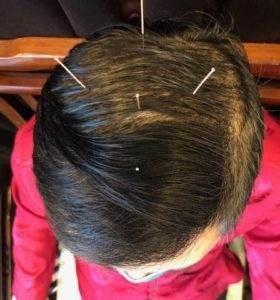
TCM theory takes a different view of the organ systems of the body than conventional modern medicine does. Whereas memory loss, cognitive impairment, amnesia, and dementia are seen as primarily having to do with the brain, in TCM we see problems with memory and cognition as also being related to the function of the kidneys, liver, spleen, and heart. The kidneys, in particular, are believed to support the brain, so if the kidneys are weak, or congested with phlegm, this can lead to amnesia. The buildup of phlegm in the body can block the smooth flow of qi and blood, leading to a lack of nourishment to the brain. It can also block the channels of communication between the heart and the brain. This concept of phlegm is roughly analogous to the conventional medical view of how heart disease arises from the buildup of cholesterol clogging the arteries. TCM treatment for amnesia and dementia will often focus, then, on the clearing of phlegm from the channels, and working to resolve other conditions, like high blood pressure or diabetes, that are contributing to the problems of memory loss and cognitive deficits.
Herbs have been used for many centuries in TCM to help improve memory function and stave off cognitive decline. In recent years, scientific research has begun to confirm that these herbs can work to reduce neurodegeneration. TCM herbal formulations have the benefit of being highly customizable, while being relatively free of potential negative side effects. Acupuncture has been demonstrated to help patients recover neurological function after traumatic brain injuries.
Top 5 Tips for Improving Your Memory With TCM
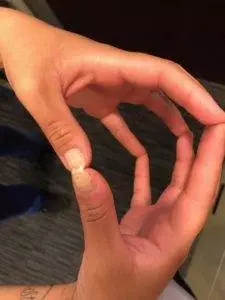
Stimulating more blood flow to the brain can help boost your memory. Try these simple home remedies to help promote better cognitive function.
- Acupressure Points for Memory – Find the tender spot right in the center of the top of the head. Stimulate this point, and the four points that can be found one inch away from the center in each direction: right, left, front, and back (see photo above). Apply gentle but deep, downward pressure with your finger to each of these five points 50-60 times each day.
- Stimulate the Fingertips and Tips of the Toes – Hold the hands so that the tips of the fingers and thumbs touch. Gently press or stroke the corresponding fingers together, each stimulating the other, up to a hundred times. Practice daily. Similarly, gently press/stroke the tip of each toe, up to a hundred times per day.
- Keep the Neck Supported – when the neck is stiff or out of alignment, blood flow to the head and brain may be compromised. If you have neck pain or tightness, be sure to address it adequately with acupuncture, a supportive pillow and appropriate sleeping position, and gentle exercise.
- Dry Brush the Scalp – use a brush or comb to stimulate the whole scalp every day. This will help bring good blood flow to the head.
- Massage the Ears – gently knead the whole outer ear, especially the ear lobe, until it is warm and red. This will stimulate many beneficial acupressure points located on the ear.
Acupuncture Near Me for Memory Loss
Perhaps someone close to you has begun to show worrying signs of cognitive decline or loss of memory. People who are suffering from amnesia and dementia associated with degenerative brain diseases like Alzheimer’s can benefit from an integrative approach that includes acupuncture and herbs.
*This article is for education from the perspective of Traditional Chinese Medicine only. The education provided by this article is not approved by FDA to diagnose, prevent, treat and cure human diseases. It should not stop you from consulting with your physician for your medical conditions. Traditional Chinese Medicine is based on Qi, which is an invisible force that usually cannot be observed by modern science. Because science focuses on testing ideas about the natural world with evidence obtained through observation, these aspects of acupuncture can’t be studied by science. Therefore acupuncture and Chinese herbs are often not supported by double-blind, randomized trials, and they are considered alternative medicine therapies in the United States.
